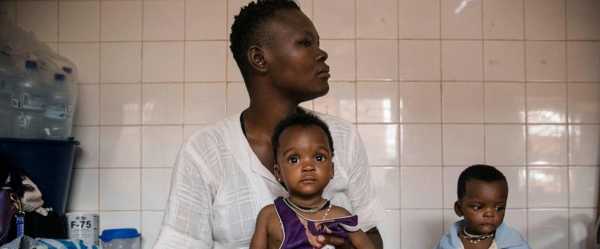
DAKAR, Senegal — Hunger is soaring and spreading across West Africa, with some 48 million people, a 10-year-high, facing food insecurity in the conflict-riddled region, the United Nations warned Tuesday.
Driven primarily by violence as well as the economic fallout from COVID-19 and inflation, food insecurity has heavily impacted Burkina Faso, Mali, Niger, northern Nigeria and Mauritania, U.N. officials said at a press conference in Senegal’s capital, Dakar.
U.N. officials said that for the first time, some 45,000 people in the Sahel region, the arid expanse below the Sahara Desert, are on the brink of starvation, one step away from famine. The vast majority facing catastrophic levels of hunger, 42,000, are in Burkina Faso, the officials reported.
“The situation is worrying," said Ann Defraye, a regional nutrition specialist for UNICEF in West and Central Africa. “Last year, we saw a large increase (31%) in the numbers of children admitted to health facilities with severe wasting across the Sahel. … In many areas, it is getting much more difficult for families to find nutritious food to eat, especially where we have communities under blockade.”
Violence linked to al-Qaida and the Islamic State group has ravaged both Burkina Faso and Mali for years.
Jihadis have blockaded dozens of villages in the region, cut off access to farms and lined the roads with explosives, making it hard for residents to move freely and forcing aid agencies to fly in food assistance, which is costly.
People living in besieged towns in Burkina Faso say they're struggling to survive.
“We don’t have enough food. People eat what they get,” a resident of Pama, a town in the east that has been under blockade for more than a year told The Associated Press.
A few aid groups have managed to provide rice, oil and beans, but women can’t grind millet because there’s no gas and people can’t leave the town because it’s surrounded by jihadis, the resident said. He would not give his name for fear of reprisals from speaking publicly.
As civilians flee attacks and militants expand their reach in Burkina Faso, hunger also is spreading across the border to neighboring Togo and Benin.
Nearly 1 million people are expected to be food insecure in Benin and Togo, almost double the number from two years earlier, according to the UN. For the first time, both countries asked aid groups for assistance in dealing with the influx of displaced people and refugees.
“We're really concerned with the coastal countries. If there's not enough done in Burkina (Faso), the risk of increasing numbers of people having to cross the border to find safe haven or livelihood opportunities because they cannot use their land or their livestock have been attacked will increase," said Alexandre Le Cuziat, a senior emergency advisor for the World Food Program in West and Central Africa.
“There’s still a prevention window in the coastal countries, but it’s closing fast. We saw it close fast in the Sahel,” Le Cuziat said.
Aid groups, regional governments and donor countries need to take lessons learned from the insecurity crisis in other countries and try to mitigate the fallout in the coastal states, he said.
Sourse: abcnews.go.com






